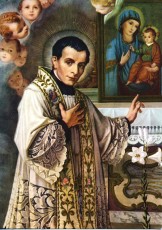
Saint Joseph Cafasso (1811-1860)
Image: Newman Connection
(EWTN) Born in Italy at Castelnuovo d’Asti, Joseph was born physically challenged with a deformed spine according to SQPN he was short in stature and handicapped throughout his life but that didn’t stop him, Joseph Cafasso, loved attending Mass as a young man and was known for his humility and passionate prayers.
Following Joseph’s Cafasso’s completion of high school and two years studying philosophy at Chieri College, he then transferred to seminary to study theology in 1830 and was Ordained a Priest three years later.
Subsequent to Fr. Joseph Cafasso Ordination, he was sent to the place that would be the main and the only ‘stage’ in his life as a Priest, the Ecclesiastical Institute of St. Francis in Italy Turin, to perfect his skills in pastoral care but it was there, he was able to put to use his gifts as a spiritual director and his devotion to charity.
The ‘Ecclesiastical Institute of St. Francis’ was not merely a school of moral theology where young Priests coming mainly from the countryside learned to hear confessions and minister effectively, it was truly a school of Priestly life, where Priests were formed in the spirituality of St. Ignatius of Loyola (Feast Day: 31 July) and in the moral and pastoral theology of the well known Bishop St. Alphonsus Liguori (Feast Day: 01 August) The Priests that Fr. Joseph Cafasso encountered at the institute and that he helped to strengthen–especially when he was Rector, were those Priests that truly were shepherds, with a rich interior life and a deep zeal for Pastoral care: Faithfulness to prayer, commitment to ministry and catechesis, dedication to celebrating the Eucharist and the sacrament of penance.
A few well chosen words by St. John Bosco (Feast Day: 31 January) summarize the educational activity of the institute: “At the institute, men learned to be Priests.”
Fr. Joseph Cafasso, sought to establish this model for the formation of young Priests so that they in turn could also form other Priests, religious and Laypersons, thereby creating a unique and an effective chain.
As a professor of moral theology, Fr. Joseph Cafasso, educated his Priests to be good Confessors and spiritual directors who were concerned with the spiritual well being of each individual, yet mindful of the necessary balance, so that each person would have an acute, vivid sense of sin while experiencing at the same time God’s mercy.
Fr. Joseph Cafasso who passed many hours in the confessional, ‘loved the Lord totally, he was animated by a well rooted faith and supported by profound and prolonged prayer, he showed sincere charity to everyone–he knew moral theology but was equally well aware of the condition of peoples hearts for which, like the Good Shepherd, he took responsibility.’
Pope Emeritus Benedict XVI further related, ‘St. Joseph Cafesso was St. John Bosco’s spiritual director from 1835 to 1860–that at no time did the former seek to make the latter “a disciple in his image and likeness.” While St. John Bosco, never copied his teacher, “he imitated him in the human and Priestly virtues–defining him as a ‘model of priestly life’ but maintained his own attitudes and his own specific vocation…This is a precious lesson from those involved in the formation and education of young generations,” said Pope Emeritus Benedict XVI
Another element that characterized the ministry of Fr. Joseph Cafasso was “his concern for the lowest–especially for prisoners who lived in inhuman and dehumanizing conditions.’ If at first in his ministry to prisoners, Fr. Joseph Cafasso, ‘often delivered great sermons that came to involve almost the entire prison population. With the passage of time, he came to favor individual catechesis made up of conversations and personal meetings. While respecting the individual situation of each individual, he tackled the great themes of Christian life, speaking of trust in God, adherence to His will, the utility of prayer and the Sacraments, the culmination of which is Confession, the meeting with God Who, for us becomes infinite mercy.”
Fr. Joseph Cafasso passed away in 1860 of pneumonia and complications of his congenital medical issues — Saint John Bosco, presided over his funeral Mass and delivered the Homily — Fr. Cafasso was Beatified in 1925 by Pope Pius XI and Canonized in 1947 by Pope Pius XII
More here from Pope Benedict XVI
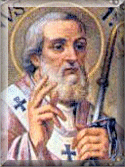
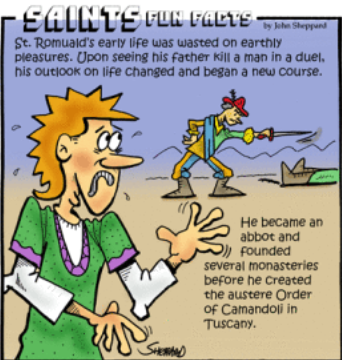
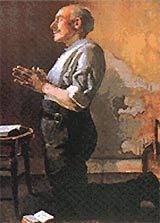

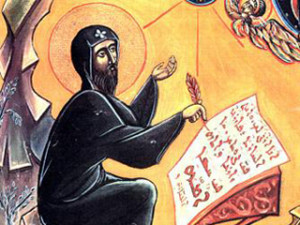
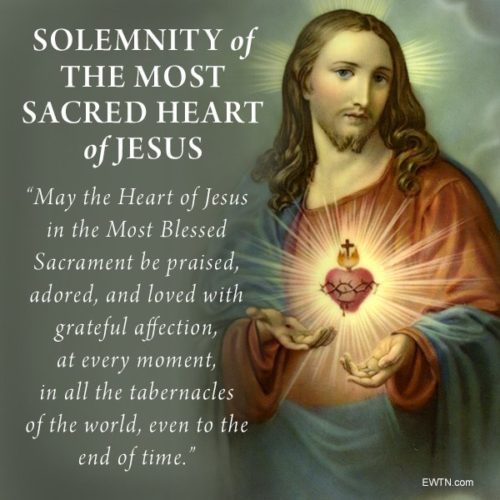 Jesus: “Take My yoke upon you and learn from Me;
Jesus: “Take My yoke upon you and learn from Me;